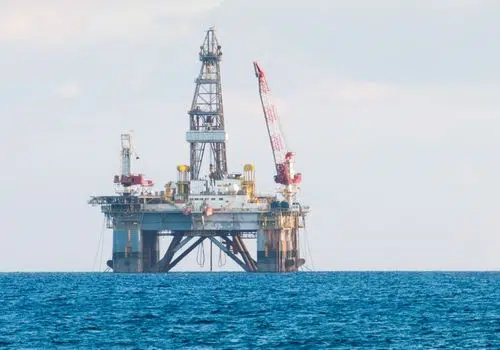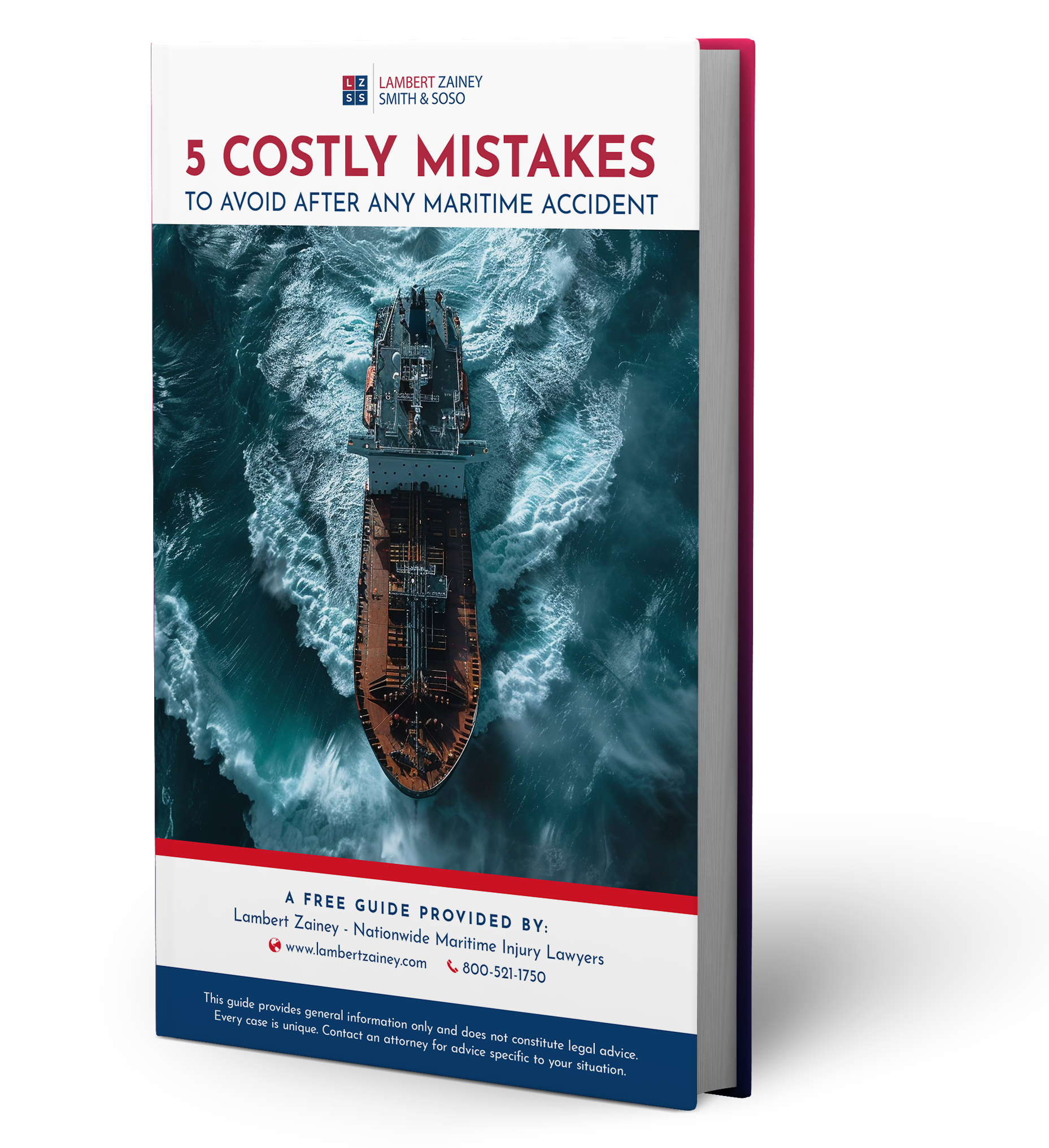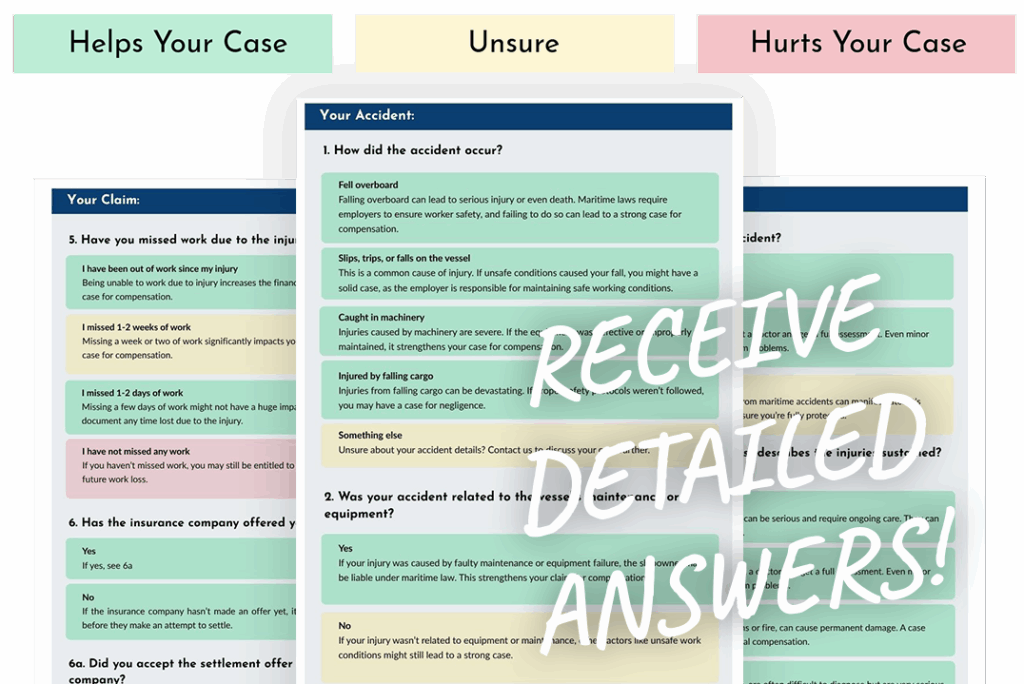Working offshore on an oil rig is one of the most dangerous jobs on the planet. Because of the type of work and the environment, oil rig workers are routinely exposed to a number of hazards. These include adverse weather conditions (such as hurricane-force winds and freezing temperatures), slips, trips, fires, explosions, mechanical breakdowns, defective equipment, and falling overboard.

To reduce the risks to oil rig workers, offshore employers are required by law to maintain their rigs in a safe, or “seaworthy” condition. When they fail to do so, the results can be a disaster. Offshore workers can become injured or killed in accidents that occur because an employer neglected to maintain an oil rig in a seaworthy condition.
Offshore Oil Rig Accident Injuries
Offshore oil rig accidents are capable of causing all kinds of serious, even fatal, injuries:
Maritime Law Allows Injured Offshore Workers To Seek Compensation for Their Work-Related Injuries
These injuries often cause severe physical and emotional damage, as well as economic losses resulting from medical treatments and lost work. The injured worker may never be able to return to work or require ongoing medical treatment and care. Few offshore workers have the resources to cope with a long-term disability.
The Jones Act and other maritime laws give offshore workers the right to seek compensation for damages and losses they have suffered due to the negligence of their coworkers, employers, or manufacturers. They are able to collect this compensation by filing a personal injury claim with the party responsible for their injuries.
How Long it Takes to Resolve an Offshore Accident Injury Case Depends on Many Factors
Depending on the circumstances, an offshore injury case can take a few months to over a year to be resolved. Since every offshore accident injury case is different, it’s impossible to precisely predict how long the process will last. The length of an offshore accident injury case depends on many factors:
The owners of oil rigs and the insurers are often reluctant to pay an injured worker compensation for their injuries, especially when they’re asking for a large amount. They will seek to delay the case any way they can and have it dismissed if possible. It’s an attempt to discourage the plaintiff from seeking the full compensation they are due for their employer’s negligent acts.
Delays can also result if a patient requires extensive surgery or therapy or if the case goes to trial rather than setting. Negotiating a settlement takes less time (and costs less) than going to court.
Maritime cases are complicated. Establishing a maritime claim requires a good deal of time and effort. The investigative process can take weeks, if not months. In many instances, these cases may take a year or more to resolve.
Statutes of Limitation Apply in Offshore Accident Injury Cases
The sooner an injured worker speaks with an attorney, the sooner their case can get underway and (hopefully) the sooner they can recover their compensation. It’s important not to wait too long to file a personal injury claim after an offshore accident. Statutes of limitation apply in offshore accident injury cases.
This means an injured worker only has a limited amount of time from the date of their accident in which to file a claim. The statutes of limitation vary from law to law. For instance, a plaintiff has three years from the date of their injury in which to file a Jones Act claim. Under the Longshoremen and Harbor Workers Compensation Act (LHWCA), an injured worker only has 30 days in which to report their injury to their employer and a year in which to file an LHWCA claim.
Get Our FREE Guide to Protect Your Claim
What you do after an accident is critical. Insurance companies will try to get you to make mistakes that can hurt your claim. Our free guide can help you avoid these traps.
Download our complimentary guide: “5 Costly Mistakes to Avoid After Any Maritime Accident” to arm yourself with the knowledge you need to protect your rights.
Speak to an Offshore Accident Injury Attorney About Your Accident
Who you choose to represent you in an offshore injury case will have a big impact on its outcome. The maritime law firm of Lambert Zainey Smith & Soso has been protecting the rights of injured offshore workers and their families since the 1970s. Our attorneys understand the ins and outs of the maritime industry and the laws that govern maritime employers and employees. We’ve successfully represented maritime workers injured in a number of high-profile offshore injury cases, including the Arco Explosion, the Drillship Seacrest Capsize, and the Penrod Modu Collapse, recovering over a billion dollars in settlements for our clients.
If you were injured in an offshore accident, don’t wait until it’s too late to get experienced legal help. Strict statutes of limitation apply in maritime law cases. Contact Lambert Zainey Smith & Soso through our website, or call us at (800) 521-1750 today to schedule a free initial consultation with an experienced offshore injury attorney.
Working offshore on an oil rig is one of the most dangerous jobs on the planet. Because of the type of work and the environment, oil rig workers are routinely exposed to a number of hazards. These include adverse weather conditions (such as hurricane-force winds and freezing temperatures), slips, trips, fires, explosions, mechanical breakdowns, defective equipment, and falling overboard.

To reduce the risks to oil rig workers, offshore employers are required by law to maintain their rigs in a safe, or “seaworthy” condition. When they fail to do so, the results can be a disaster. Offshore workers can become injured or killed in accidents that occur because an employer neglected to maintain an oil rig in a seaworthy condition.
Offshore Oil Rig Accident Injuries
Offshore oil rig accidents are capable of causing all kinds of serious, even fatal, injuries:
Maritime Law Allows Injured Offshore Workers To Seek Compensation for Their Work-Related Injuries
These injuries often cause severe physical and emotional damage, as well as economic losses resulting from medical treatments and lost work. The injured worker may never be able to return to work or require ongoing medical treatment and care. Few offshore workers have the resources to cope with a long-term disability.
The Jones Act and other maritime laws give offshore workers the right to seek compensation for damages and losses they have suffered due to the negligence of their coworkers, employers, or manufacturers. They are able to collect this compensation by filing a personal injury claim with the party responsible for their injuries.
How Long it Takes to Resolve an Offshore Accident Injury Case Depends on Many Factors
Depending on the circumstances, an offshore injury case can take a few months to over a year to be resolved. Since every offshore accident injury case is different, it’s impossible to precisely predict how long the process will last. The length of an offshore accident injury case depends on many factors:
The owners of oil rigs and the insurers are often reluctant to pay an injured worker compensation for their injuries, especially when they’re asking for a large amount. They will seek to delay the case any way they can and have it dismissed if possible. It’s an attempt to discourage the plaintiff from seeking the full compensation they are due for their employer’s negligent acts.
Delays can also result if a patient requires extensive surgery or therapy or if the case goes to trial rather than setting. Negotiating a settlement takes less time (and costs less) than going to court.
Maritime cases are complicated. Establishing a maritime claim requires a good deal of time and effort. The investigative process can take weeks, if not months. In many instances, these cases may take a year or more to resolve.
Statutes of Limitation Apply in Offshore Accident Injury Cases
The sooner an injured worker speaks with an attorney, the sooner their case can get underway and (hopefully) the sooner they can recover their compensation. It’s important not to wait too long to file a personal injury claim after an offshore accident. Statutes of limitation apply in offshore accident injury cases.
This means an injured worker only has a limited amount of time from the date of their accident in which to file a claim. The statutes of limitation vary from law to law. For instance, a plaintiff has three years from the date of their injury in which to file a Jones Act claim. Under the Longshoremen and Harbor Workers Compensation Act (LHWCA), an injured worker only has 30 days in which to report their injury to their employer and a year in which to file an LHWCA claim.
Get Our FREE Guide to Protect Your Claim
What you do after an accident is critical. Insurance companies will try to get you to make mistakes that can hurt your claim. Our free guide can help you avoid these traps.
Download our complimentary guide: “5 Costly Mistakes to Avoid After Any Maritime Accident” to arm yourself with the knowledge you need to protect your rights.
Speak to an Offshore Accident Injury Attorney About Your Accident
Who you choose to represent you in an offshore injury case will have a big impact on its outcome. The maritime law firm of Lambert Zainey Smith & Soso has been protecting the rights of injured offshore workers and their families since the 1970s. Our attorneys understand the ins and outs of the maritime industry and the laws that govern maritime employers and employees. We’ve successfully represented maritime workers injured in a number of high-profile offshore injury cases, including the Arco Explosion, the Drillship Seacrest Capsize, and the Penrod Modu Collapse, recovering over a billion dollars in settlements for our clients.
If you were injured in an offshore accident, don’t wait until it’s too late to get experienced legal help. Strict statutes of limitation apply in maritime law cases. Contact Lambert Zainey Smith & Soso through our website, or call us at (800) 521-1750 today to schedule a free initial consultation with an experienced offshore injury attorney.









